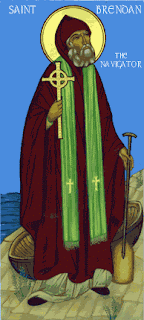
"
I would like to appeal in a special way to the men of the army, and in particular to the troops of the National Guard, the Police, and the garrisons. Brothers, you belong to our own people. You kill your own brother peasants; and in the face of an order to kill that is given by a man, the law of God should prevail that says: Do not kill! No soldier is obliged to obey an order counter to the law of God. No one has to comply with an immoral law. It is time now that you recover your conscience and obey its dictates rather than the command of sin. The Church, defender of the rights of God, of the law of God, of the dignity of the human person, cannot remain silent before so much abomination.
"We want the government to seriously consider that reforms
mean nothing when they come bathed in so much blood. Therefore, in the name of God, and in the name of this long-suffering people, whose laments rise to heaven every day more tumultuous, I beseech you, I beg you, I command you in the name of God: Cease the repression!"
+Oscar Romero
Archbishop of San Salvador
Many of my faithful readers know that I have a fairly strong position against the Church getting involved in the state through means like elections, jury duty, holding public office, etc. So why, oh why, would I post these words from the final homily of Archbishop Romero - words so politically charged, if I didn't agree with the notion of Christians interfering in secular matters.
Well, I suppose that the reason is that I believe that the Church should interfere in secular matters all the time, just not using the means of this world to do it.
Okay... wipe the "huh" look off your face.
One of the most powerful means of communication in the world is the sermon. Words spoken with the power of God's own word, and with a passion of conviction, can truly change the world. Look at the ancient Church; her pastors preached with great confidence in God and great love for the world around them - pagan and Christian - and would often preach against the horrific treatment that their brothers and sisters (of whatever persuasion) went through. We are called to do the same.
Do I support every element of liberation theology? No. I can't say that I do. I can say, however, that +Romero's words and his courage to stand up for the people committed to his care, a people who were being slaughtered by the government because of their identity, should inspire us, today, to speak openly and vocally from our pulpits and ambos about the muffling of the faith in America, and the constant degradation of religious liberty (for all faiths!) that we are experiencing in North America.
The Church must excite her members to holiness, and must serve as a vocal conscience for the human community... even when those outside her walls do not wish to hear what she has to say.
Just some offhanded thoughts on this Friday morning.
.jpg)







